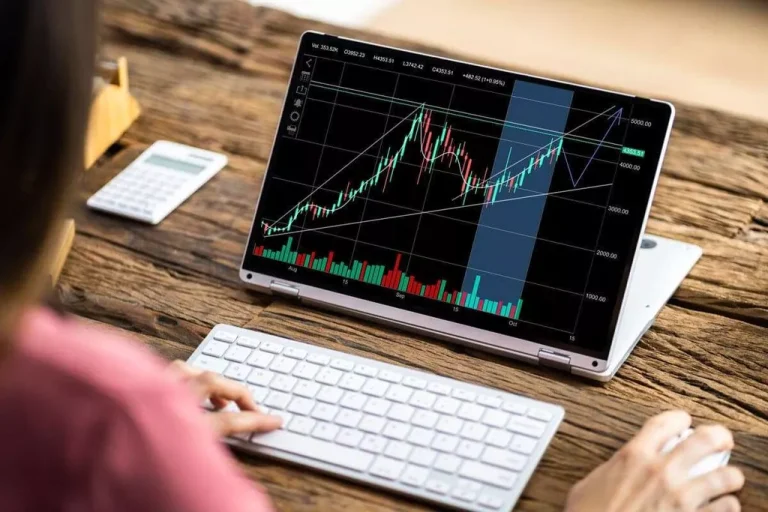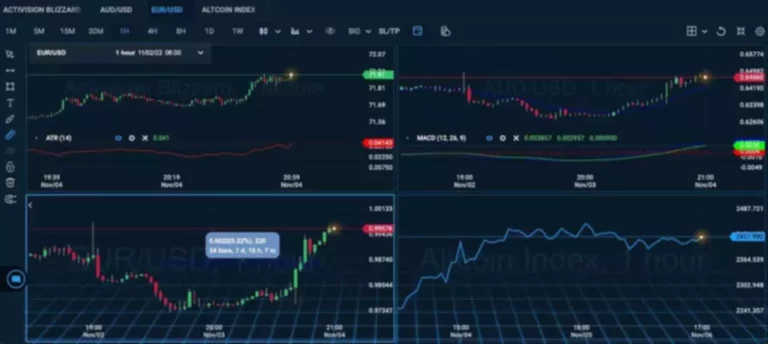A Stop order does not guarantee a specific execution price and may execute significantly away from its stop price. A Sell Stop order is always usually placed below the current market price. Like a limit order, a stop order may have a “time in force” value, after which the stop order will automatically expire. If this value is not defined, the order will expire at the end of the trading day.

For example, if a trader wants to enter a market position by buying ten shares of Microsoft stock, the matching engine will find a buyer willing to sell ten shares of Microsoft at the market price. When an order completes, either because it is filled, canceled or expires, a status message is returned to the agent that submitted the order. Whenever there is a market transaction there is a risk that a counter party will default on the transaction. The order exchanges, like NASDAQ and the NYSE, include multiple clearinghouses that act as transaction counter parties. If one party defaults, the clearing house will make good on the transaction.
I becomes a bit trickier when more than one counter order could match with the current order. This is where the matching engine allocation algorithm comes into play. By default, a matching engine will always try to find the best price available (2) for a given order (1). When the buy order is greater than the sell order, the sell order is completely fulfilled, and the buy order is partially filled. For the leftover buy quantity, an order is made and pushed into the order queue for matching. Is making a stock market application without a stock exchange possible?
Matching Engine Software: How Does it Work?
The electronic trading networks came being as the stock markets were being deregulated, with trading moving to penny increments. Market prices are set either by the market open prices or by limit orders. Market orders have no target price, so they cannot define price in the market. [Figure 3 diagram goes here] The critical place of order matching engines in financial trading means that reliability and fault tolerance is a critical feature in a production matching engine.
A system using the Pro-Rata algorithm also gives priority to the highest-priced buy order. However, buy orders with the same highest price are https://www.xcritical.com/ matched in proportion to each order size. First-In-First-Out (FIFO) and Pro-Rata are the two most common algorithms used for matching orders.
Note that the buyer’s and seller’s prices do not 100% match because the seller wants to sell at the highest possible price, while the buyer wants to purchase at the lowest possible price. The three largest futures match engines by contract volume are the CME Group’s Globex platform, NYSE Euronext’s Liffe Connect and Eurex’s 10.0 system release. As Figure 2 shows, limit order matching is also complicated by the presence of both limit and market orders. A cancellation order cancels a limit or stop order (if the stop order has not converted to a limit order, in which case it cannot be canceled). Market orders cannot be canceled because their execution will take place immediately when there is a opposite order. Canceling a market order would be non-deterministic, so this is not supported.
Argo Trading Platform Source Code Licenses
Second, suitable matching engine software can help ensure that trades are executed at the best possible price. When you have many orders, a good matching mechanism can select the best price for each trade. A good matching mechanism can provide several advantages for trading.

This capability enables the inclusion of derivative products in the exchange’s portfolio. DXmatch can be easily deployed on different platforms, including bare metal servers or cloud platforms like AWS and Google Cloud. This flexibility allows trading venues to choose the deployment option that best suits their needs and infrastructure. In our own DXmatch solution, we use clusters of independent order processing units (replicated state machines), all equal copies of one another in order to maintain high availability in a cloud environment.
Choosing a Crypto Matching Engine For Your Business
Check if specialized order types like Trailing Stops, One-Cancels-the-Other (OCO), and Iceberg orders are available or planned for future implementation. Choosing the right matching engine is a critical decision that requires careful evaluation. Not every trader is aware of these concepts because they work in the background of every trade, and only exchange operators are involved in how these engines work and which one to choose. However, they are less secure because they operate on one server, and attackers may target it and breach its infrastructure.
The matching engine scans through the order book to pair buyers with sellers. Choosing the right algorithm and engine is crucial if you own a crypto platform and want to provide quick execution for your users. Therefore, find software that provides safe and fast trading by accessing larger liquidity pools. Exchanges using centralised matching algorithms usually charge higher fees because they deploy more resources to keep their servers safe and fulfil and sell orders at a higher frequency. Decentralised ones that use a peer-to-peer network are usually less expensive. The safety and security of a matching engine are one of the most important key features of a trading platform.
Sell orders are sorted from the lowest sell price to the highest sell price. Buy orders are sorted from the highest bid price to the lowest bid price. Orders with the highest bid price are executed first, while those with equal bid price are performed in terms of the order that arrives first. A matching engine can partially fulfill an order or not meet it at all in the case of a limit order. The result is that the trade occurs at 100 USD because User A’s order was first to the trading engine and User A has price priority. Below we will consider several basic types of algorithms used to match orders on exchanges.
Matching engines will always attempt to match a buy order before a sell order. Cancel orders are given the highest priority, followed by market orders. A market order is filled if there is an opposite order in the market. In today’s market, investors use many instruments and ready-made strategies. The order book is one of the most universal tools for market analysis and can be used in almost all strategies and trading systems, either as a filter or as a signal source for making deals. However, if we wanted to match an order completely, going only with Pro Rata did not suit our requirements.
For example, if a trader wants to sell 1 BTC, the matching engine will search for a buyer willing to pay a close price to purchase the offered 1 BTC price. No one wants to spend hours before executing a trade because a minute lost in a highly volatile market equates to returns lost. A how do crypto matching engines work enables rapid order execution, which is certainly advantageous to both retail and institutional traders.
- Matching engine algorithms follow different execution models by prioritising first trade proposals or those with more significant volumes.
- The Market Data Feed is designed to provide the latest market information rather than all events occurring in the market.
- FIFO, or strict price and time priority algorithm, is the simplest and most intuitive mechanism for allocating trades.
- In the process of summarizing incoming market orders, the limit order placed in the order book first gets the highest priority among other orders that are at the same price level.
- So, to let the trade happen on our platform, we need to have our order-matching engine.
So, with the leftover sell quantity, an order is made and pushed into the order queue for matching. If the buy order and the sell order are equal, the order is matched. In this case, both the orders i.e. the sell and the buy orders get fulfilled, and the engine starts matching the next order.
That’s why they can be easily used on all conventional markets and even some unconventional ones, like prediction markets. Moreover, crypto exchanges deploy big data and rely on providing information quickly and accurately. Therefore, find a matching engine that powers trading desks with quick data exchange and uses fast servers. Therefore, the ability to provide real-time data and your choice of algorithm are important factors in choosing the right matching engine. Cryptocurrency matching engine algorithms can be centralised or decentralised.
An order matching system or simply matching system is an electronic system that matches buy and sell orders for a stock market, commodity market or other financial exchanges. The order matching system is the core of all electronic exchanges and are used to execute orders from participants in the exchange. Cryptocurrency matching engine algorithms are not unified for all brokers and exchanges, and each platform uses an engine that suits their requirements, budget, userbase and trading volume. Matching engines deploy different algorithms that crawl the order book to find and settle suitable requested trades. This system works by finding a matching order request and settling it according to the market order requests by the trader.
